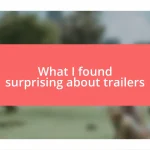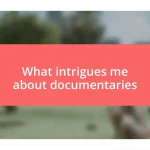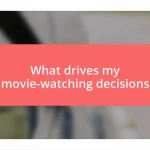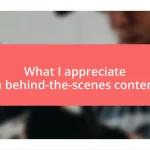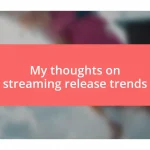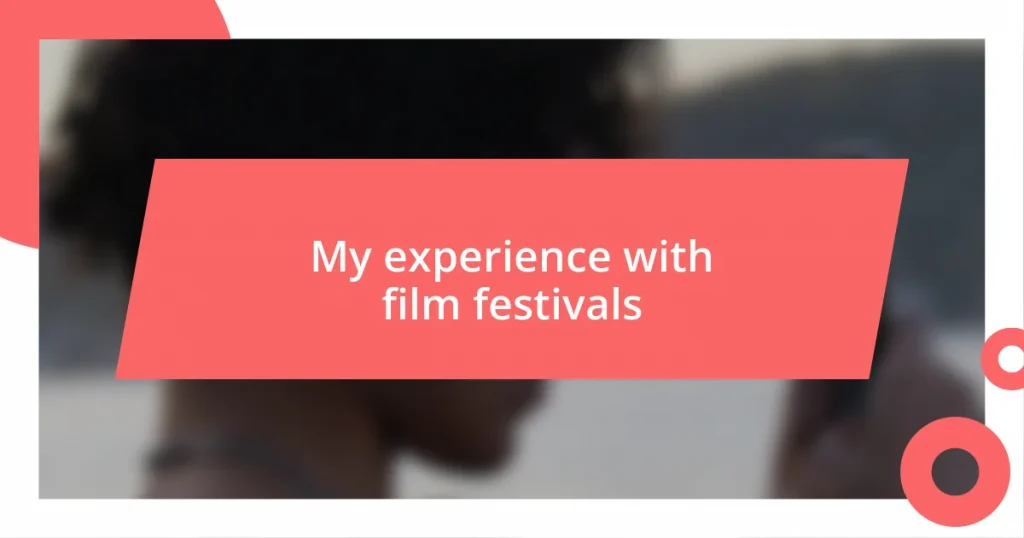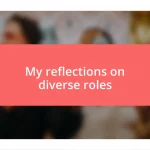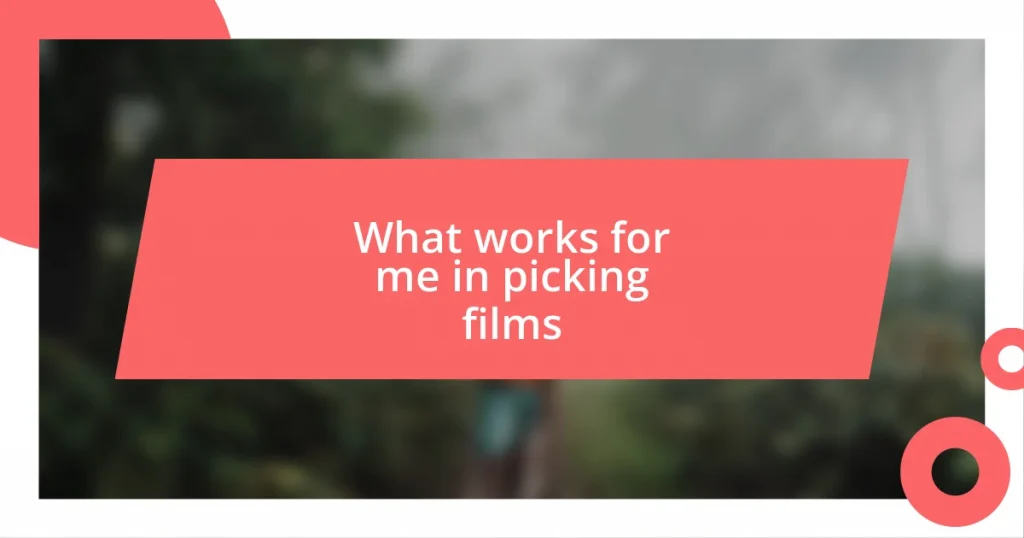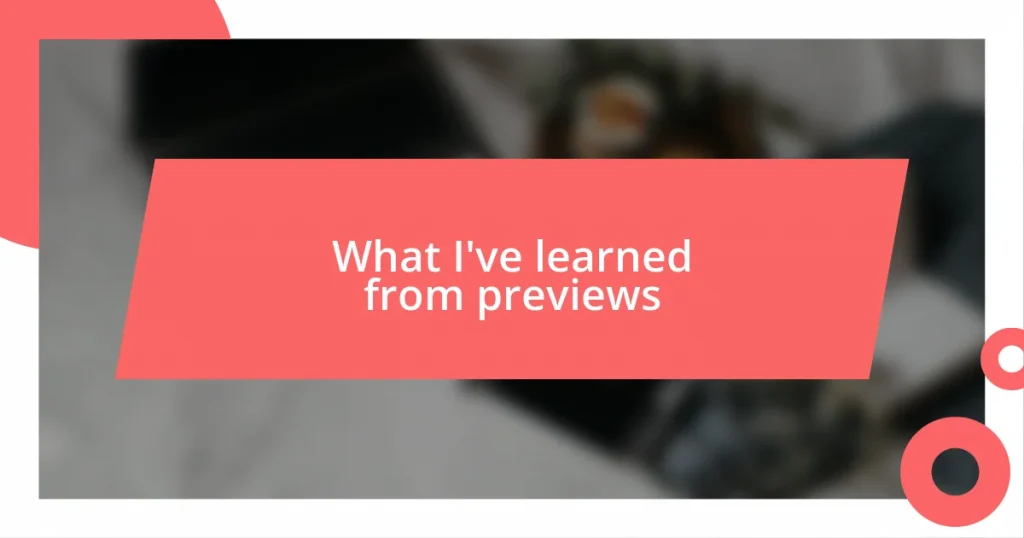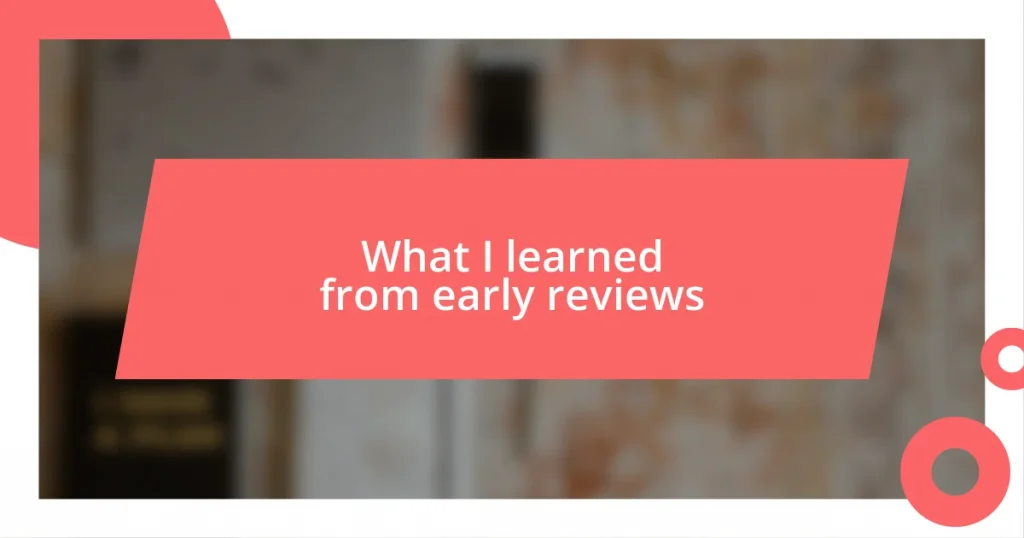Key takeaways:
- Film festivals foster community and cultural exchange, allowing audiences to connect with filmmakers and gain new perspectives through shared experiences.
- Preparation is essential for a successful festival experience; researching the lineup, planning schedules, and networking can enhance enjoyment and opportunities.
- Receiving and processing feedback is crucial for filmmakers; constructive criticism can lead to growth and improved storytelling skills.
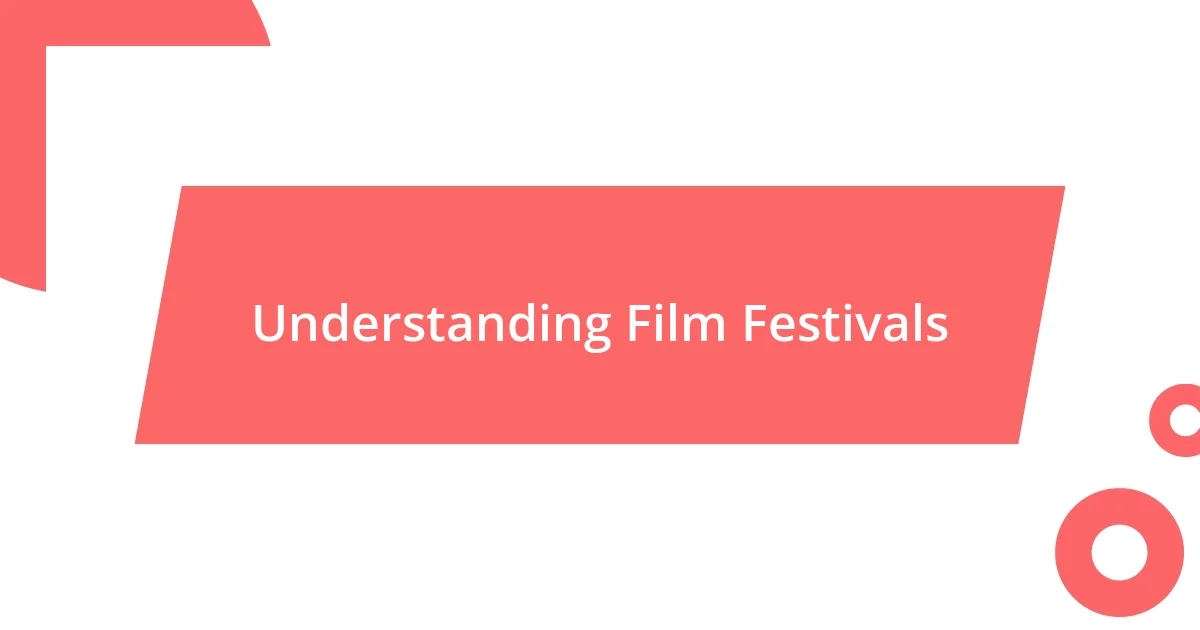
Understanding Film Festivals
Film festivals are vibrant gatherings that celebrate the art of cinema, but they’re so much more than just screenings. I vividly remember my first festival experience—the energy was palpable as filmmakers and enthusiasts mingled. It made me feel part of something bigger, a community passionate about storytelling. Isn’t it incredible how a shared love for film can ignite conversations that last well beyond the closing credits?
Each festival typically has its unique flavor, shaped by its location, types of films featured, and even the audience it attracts. One year, I attended a small indie festival, and the intimate setting made every screening feel personal. I found myself engaging with filmmakers after their shows, sharing not just feedback but genuine conversations about their creative processes. Could you imagine what it’s like to connect directly with the voices behind the stories we love?
Beyond showcasing films, festivals create a platform for cultural exchange and discovery. I recall stumbling upon a powerful documentary that profoundly impacted my perspective on a social issue. It dawned on me then how these events can enlighten audiences, sparking both critical conversations and emotional connections. Isn’t it fascinating to think about how a single film can change someone’s viewpoint or inspire action?
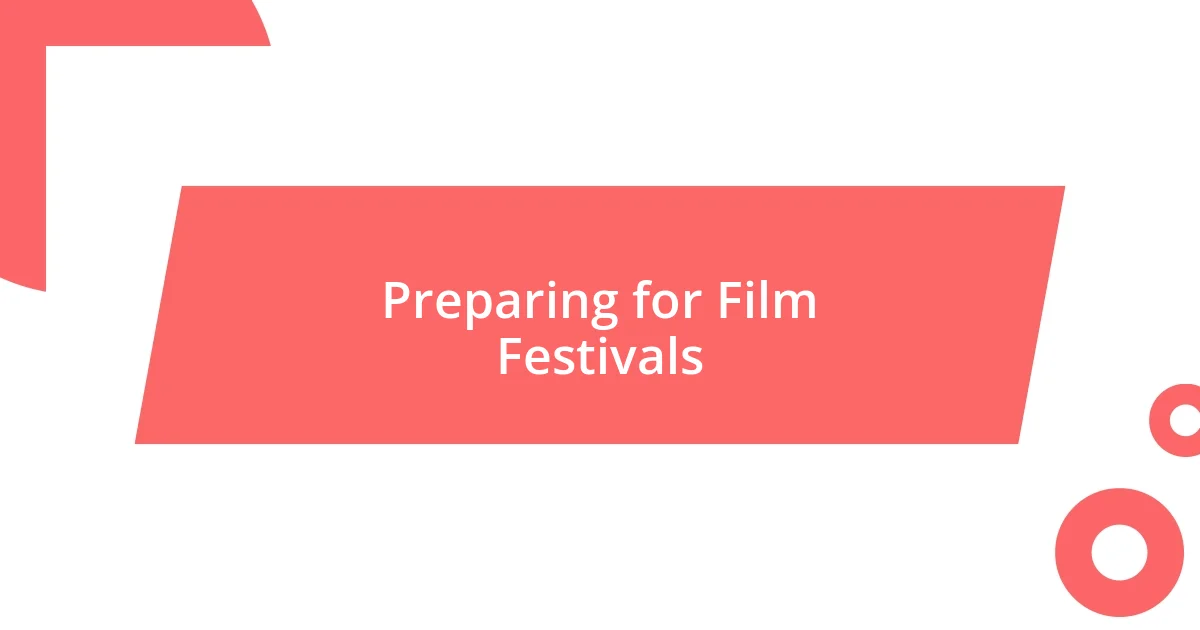
Preparing for Film Festivals
Preparing for a film festival can be as exhilarating as the festival itself. I remember jotting down all the film titles I wanted to see in a frenzy, like a kid in a candy store. That thrill of anticipation is infectious—having a solid game plan enhances your experience, allowing you to soak in as much as possible while navigating the buzz of the event.
Here’s what I typically focus on to prepare:
- Research the Lineup: Take time to explore the films and directors featured. A little background can enrich your viewing experience. I once discovered a short film by a local director that completely blew me away!
- Plan Your Schedule: Festivals can be overwhelming with their packed agendas. Mapping out which screenings to attend and setting aside time for networking can save you from feeling rushed.
- Connect with Other Attendees: Engaging with fellow film lovers can lead to meaningful conversations. I cherish the connections that formed over a shared passion for a particular film, often leading to unexpected discussions about our favorite directors.
- Pack Essentials: Snacks, a portable charger, and comfortable shoes are must-haves. Trust me, you’ll be grateful for these small comforts during long festival days.
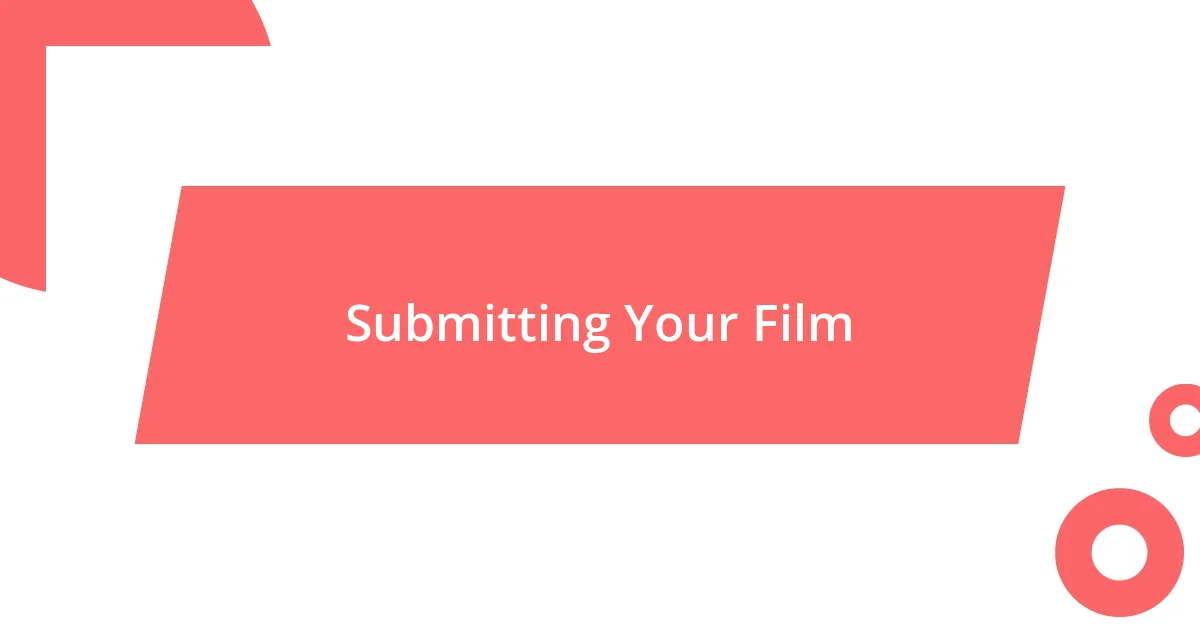
Submitting Your Film
Submitting your film to festivals can feel like embarking on a wild adventure. I’ve navigated through countless submission processes, and trust me, it’s a mix of excitement and anxiety. Each festival has its own submission requirements, deadlines, and entry fees. One time, I rushed my submission just before the deadline and ended up mixing up the required formats. The panic was real! Make sure to read the guidelines carefully; they can really make or break your film’s chance at being showcased.
It’s also important to consider the festival’s ethos and audience when submitting your film. I remember submitting a whimsical short to a festival known for its bold and experimental works. To my surprise, my film was embraced with open arms, and it felt like a validation of my creative vision. Choosing the right festival is crucial—selecting one that resonates with your film’s theme and style can significantly enhance your chances of success. Have you ever thought about how your film fits into a festival’s narrative? It can be a game changer.
Building a strong submission package is another vital step. I’ve learned that a compelling synopsis and a striking one-sheet can capture the festival’s attention. Speaking from experience, I once overlooked crafting a captivating description, thinking the film would speak for itself. After that, I noticed that even the best films sometimes struggled to shine without a well-written introduction. Remember, your submission should showcase not just your film but your vision behind it.
| Aspect | Considerations |
|---|---|
| Submission Guidelines | Read carefully; each festival has unique requirements and deadlines. |
| Understanding the Festival | Research its themes and audiences to align your film appropriately. |
| Submission Package | Ensure synopses and visuals are compelling to draw interest. |
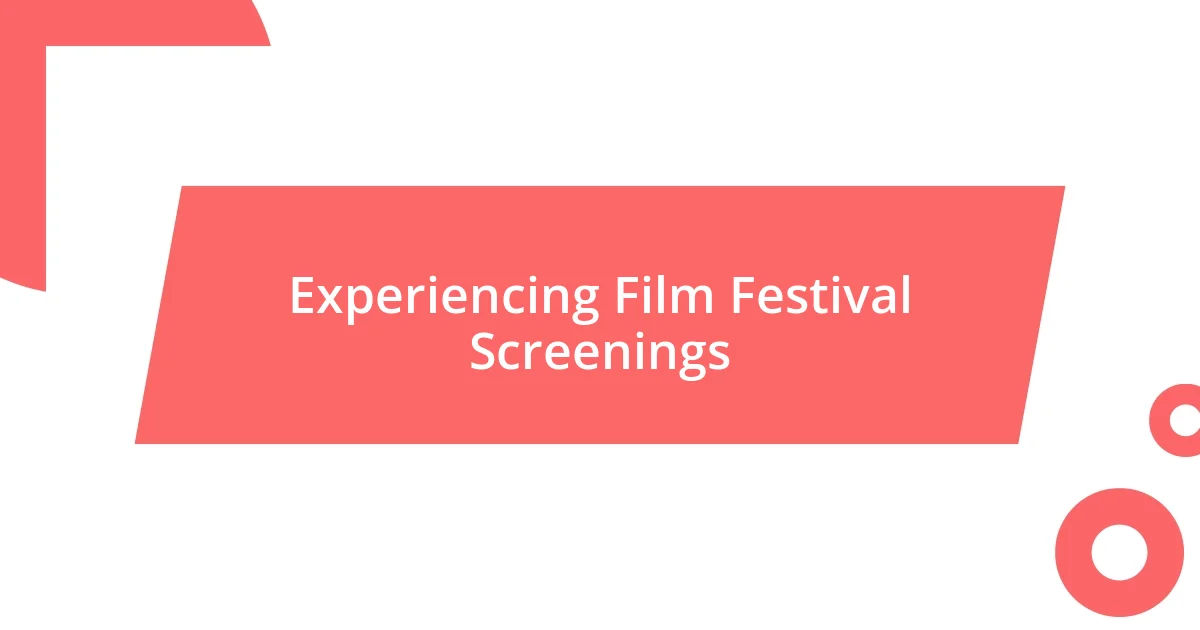
Experiencing Film Festival Screenings
Experiencing a film festival screening is something quite unique. I still remember the anticipation as I settled into a crowded theater, the air buzzing with excitement and the promise of new stories. Watching a film in that electric atmosphere, surrounded by strangers who share your passion, amplifies every moment; it’s like the film speaks to a collective consciousness. Have you ever felt that tight-knit energy during a screening? It’s truly magical.
As the lights dimmed and the first frames flickered to life, I found myself not just watching, but fully immersed. Each emotional beat pulled me deeper into the narrative. I recall a heart-wrenching documentary that had the entire audience in tears, strangers holding each other’s hands in solidarity. That shared experience of vulnerability and joy stays with you long after the credits roll. It’s a poignant reminder of how film can connect us, transcending individual experiences to create something larger than ourselves.
Beyond the films themselves, I thrive on the discussions that happen afterward. I’ve had memorable conversations with fellow attendees, where we dissected plot twists, character arcs, and cinematography techniques right outside the screening room. One late-night chat led to discovering a hidden gem—an indie film I’d never considered before, which ended up being a profound highlight of the festival for me. Isn’t it fascinating how a casual conversation can lead to unexpected discoveries? Engaging in these exchanges enriches the overall experience and fosters a sense of community.
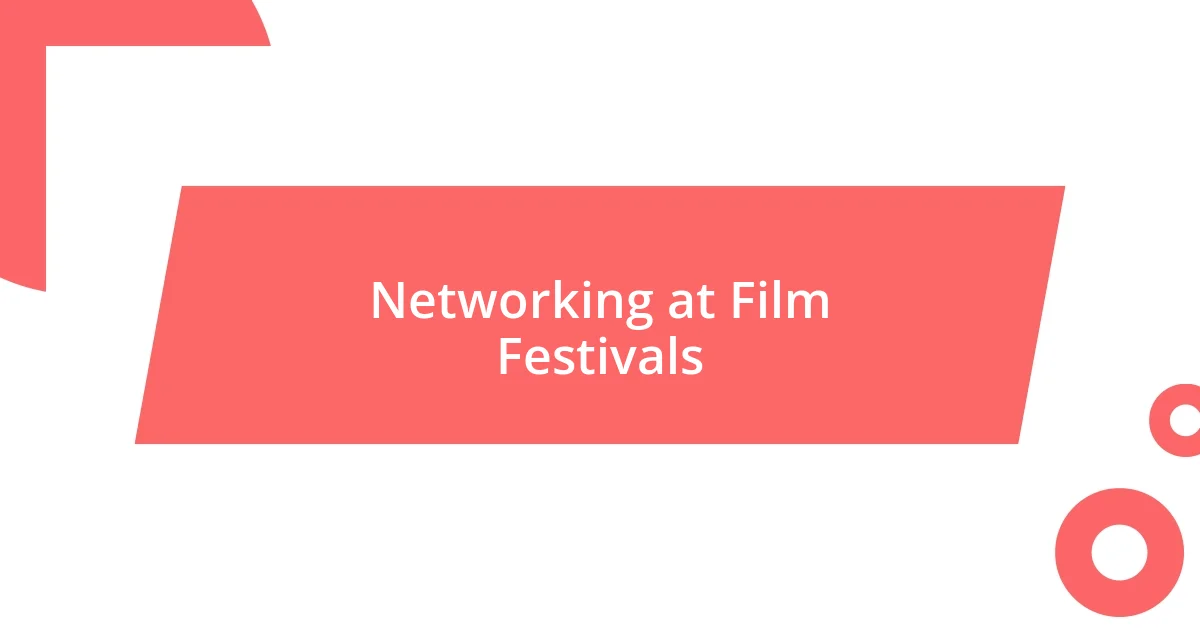
Networking at Film Festivals
Networking at film festivals has been one of the most rewarding aspects of my experience. I remember one year at a festival where I unexpectedly bumped into a filmmaker I had admired for ages. We struck up a conversation about his latest project, and before I knew it, I was sharing my own ideas and aspirations. That initial connection led to an invitation to collaborate on a short film, which turned out to be one of my proudest achievements. It makes me wonder, how often do we underestimate the power of a simple conversation?
Every time I attend a festival, I make it a point to step out of my comfort zone and introduce myself to strangers. I learned this from my early experiences—initially, I would cling to familiar faces, but that limited my opportunities. One day, I approached a group of enthusiastic screenwriters who were discussing their themes, and just by sharing a few insights, we ignited a collaborative spirit. We ended up exchanging contact info and now share resources and feedback, enhancing our creative journeys together. Isn’t it fascinating how each encounter can lead to new possibilities?
I also found that attending panels and workshops can greatly enhance networking opportunities. I recall attending a workshop on storytelling techniques, where I not only gained valuable insights but also connected with fellow participants. We shared our projects, offered support, and even formed a small critique group that still meets to this day. These interactions and shared experiences create a supportive environment tailored for growth. Have you ever considered how much you could learn from someone else’s perspective? Engaging with others in these settings has always enriched my understanding of filmmaking and opened doors I never anticipated.
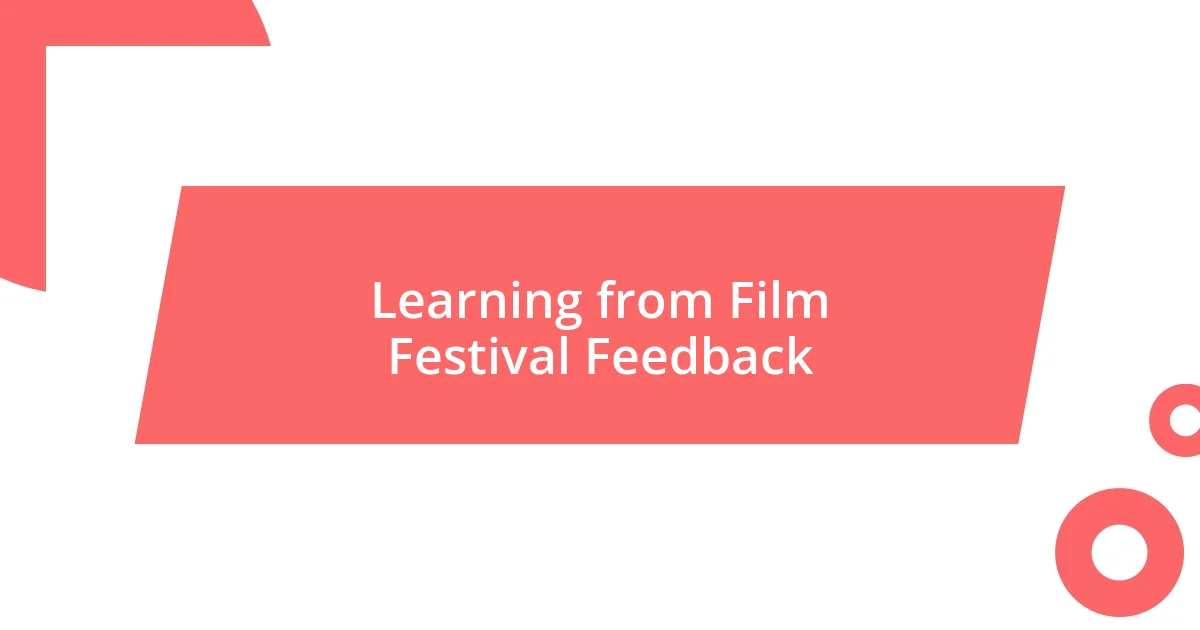
Learning from Film Festival Feedback
Feedback is a crucial component of the film festival experience, offering insights that can shape a creator’s journey. I remember nervously watching my short film at a festival, feeling exposed as the audience reacted. After the screening, I was flooded with both praise and critical feedback, and while it stung to hear the criticisms, I eventually realized how valuable those insights were. Have you ever received feedback that stung but ultimately made you better? I certainly have.
One particularly enlightening moment occurred after a Q&A session, where an audience member pointed out a crucial plot inconsistency. At first, I was defensive—after all, I’d poured my heart and soul into the piece. However, as I reflected on their observation, I recognized it was a blind spot I hadn’t considered. This experience reminded me that constructive criticism, though challenging to accept, can be a gateway to growth. I often ask myself: How can you improve if you don’t open yourself up to differing viewpoints?
I’ve also learned the importance of synthesis in processing feedback. After a festival, I would jot down my notes from conversations and remarks, grouping similar comments together. During one festival, a few attendees echoed concerns about pacing, which led me to reconsider my editing choices. By revisiting my work with their suggestions in mind, I was able to enhance the narrative flow significantly. Isn’t it amazing how collective insights can lead to profound realizations? Engaging with feedback in this way has consistently deepened my appreciation for the collaborative nature of filmmaking.




